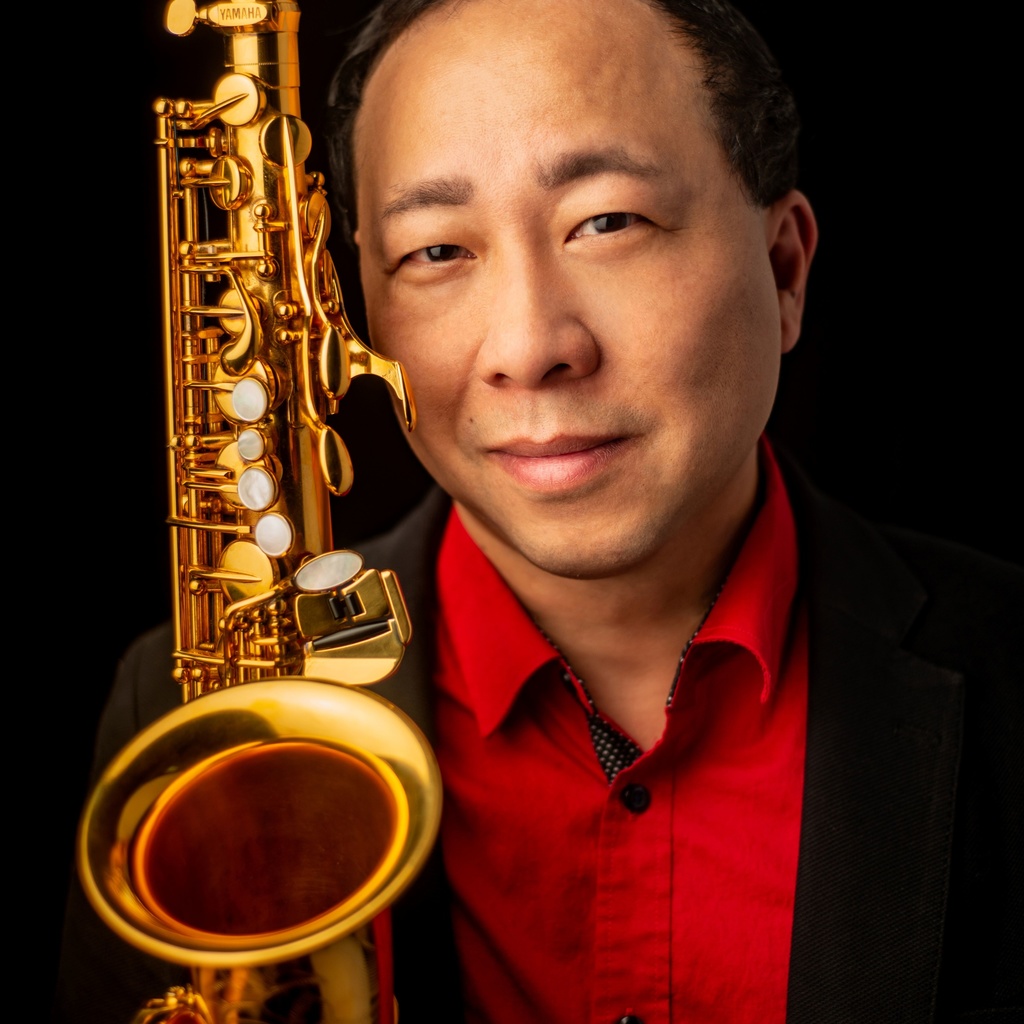Join us for saxophone auditions
Undergraduate audition days
- Friday, Feb. 13, 2026
Graduate audition days
- Friday, Feb. 13, 2026
Undergraduate saxophone auditions
Audition day information
See the submission deadline for undergraduates to file with the School of Music and learn more about Audition Day.
Learn more about the saxophone studio: https://saxophone.studio.uiowa.edu/
Prescreening
Submit links (audio or video) of the pre-screening materials on the School of Music form. They are due by December 20, 2025.
- Time limit: no less than 10 minutes, no longer than 20 minutes
- Choose five scales, quarter-note = 88 x 4 sixteenths, articulation of your choice
- Repertoire: two contrasting movements from the same or two different pieces. Unaccompanied works are allowed.
- Accompanied works must be performed with piano accompaniment (or a pre-recorded track).
- Judging criteria: tone quality, musicianship, overall control, consistency, and fluency.
Preparation requirements
Auditionees are expected to have had private instruction, but it is not a prerequisite.
Time requirement
No less than 10 minutes, no longer than 20 minutes.
Accompaniment
When pieces with piano are chosen, please bring an accompanist if possible.
Technical requirements
- All major and minor scales (as many versions as possible) at a minimum tempo of quarter note = 80 x 4 (sixteenth notes)
- Chromatic scale
- Two contrasting solo pieces (one lyrical and one technical) with or without piano.
Suggested repertoire
Alto/baritone:
- Henk Badings: Concerto
- Roger Boutry: Divertimento
- Paul Bonneau:Caprice en forme de valse
- Herbert Couf: Introduction, Dance and Furioso
- Paul Creston: Sonata
- Alexandre Glazunov: Concerto
- Ida Gotkovsky: Brillance
- Jascha Gurewich: Concerto
- Walter Hartley: Petite Suite
- Bernhard Heiden: Sonata
- Bernhard Heiden: Diversion
- Jacques Ibert: Concertino da camera
- Lawson Lunde: Sonata
- Paule Maurice: Tableaux de Provence
- Darius Milhaud: Scaramouche
- Alfred Reed: Ballade
Tenor
- Jules Demersseman: Introduction and Variations
- James DiPasquale: Sonata
- Walter Hartley: Poem
- Jean-Baptiste Singelée: Adagio et Rondo
- Hector Villa-Lobos: Fantasia
Judging criteria
- Tone quality,
- Musicianship
- Overall control
- Consistency and fluency
Scholarship consideration
You are considered for scholarship at the time of audition.
Audition results
You will be notified via formal letter about your audition results and music scholarship results in early March.
Graduate saxophone auditions
Application and audition registration
Please see Graduate Admissions Process for School of Music application and audition registration information.
Learn more about the saxophone studio: https://saxophone.studio.uiowa.edu/
Prescreening
- Create a PDF with the links of the pre-screening materials and then upload it directly to the online application using the “Other Application Support Document” and title it “Pre-Screening Document.”
- School of Music application and recording must be received no later than December 20, 2025.
- An email invitation to audition, or otherwise, will be sent after your recording has been reviewed.
Requirements for the pre-screening recording:
- Time limit: no less than 10 minutes, no longer than 20 minutes
- Repertoire: 2 contrasting movements from the same or two different pieces.
- Unaccompanied works are allowed. Accompanied works must be performed with piano accompaniment (or pre-recorded track).
Preparation requirements
No preparation requirements other than the prescreening.
Time requirement
No less than 10 minutes, no longer than 20 minutes.
Accompaniment
When pieces with piano are chosen, please bring an accompanist if possible.
Technical requirements
- All major and minor scales (extended to altissimo range if possible) at a minimum tempo of quarter note = 120 x 4 (sixteenth notes).
- Chromatic scale, diminished scales, and whole-tone scales.
- Two contrasting solo pieces (one lyrical and one technical) with or without piano.
Sample repertoire
Soprano
- Luciano Berio: Sequenza VIIb
- David Canfield: Sonata
- Thierry Escaich: Le chant des tenebres
- Jindrich Feld: Sonata
- Jindrich Feld: Elegie
- Pedro Iturralde: Suite Hellenique
- Or any baroque transcriptions
Alto
- Warren Benson: Aeolian Song
- Luciano Berio: Sequenza IXb
- David Canfield: Sonata
- Jacques Charpentier: Gavambodi II
- Paul Creston: Concerto
- Ingolf Dahl: Concerto
- Alfred Desenclos: Prelude, cadence et finale
- Jindrich Feld: Sonata
- Jindrich Feld: Suite Rhapsodica
- Ida Gotkovsky: Variations Pathetiques
- Karel Husa: Elegie et Rondeau
- Lars-Erik Larsson: Concerto
- Christian Lauba: an etude of your choice
- Frank Martin: Ballade
- Robert Muczynski: Sonata
- Robert Muczynski: Concerto
- Lucie Robert: Cadenza
- John C. Worley: Sonata
Tenor
- Michael Cunningham: Trigon, Op. 31
- Morton Gould: Diversions
- Christian Lauba: an etude of your choice
- Frank Martin: Ballade
- Leon Stein: Sonata
- Robert Ward: Concerto
- John C. Worley: September Sonata
Baritone
- J. S. Bach: Six Suites for Cello
- David Canfield: Sonata
- Michael Cunningham: Sonata
- Walter Hartley: Sonata
- Christian Lauba: an etude of your choice
- John C. Worley: Sonatina
Judging criteria
- Tone quality,
- Musicianship
- Overall control
- Consistency
- Fluency
Audition results
You will be notified via formal letter about your audition results in early March.
Acceptance rate
The number of students accepted each year is determined by the needs of the studio, which are ever-changing due to the size of the graduating class and other factors.
Questions?
